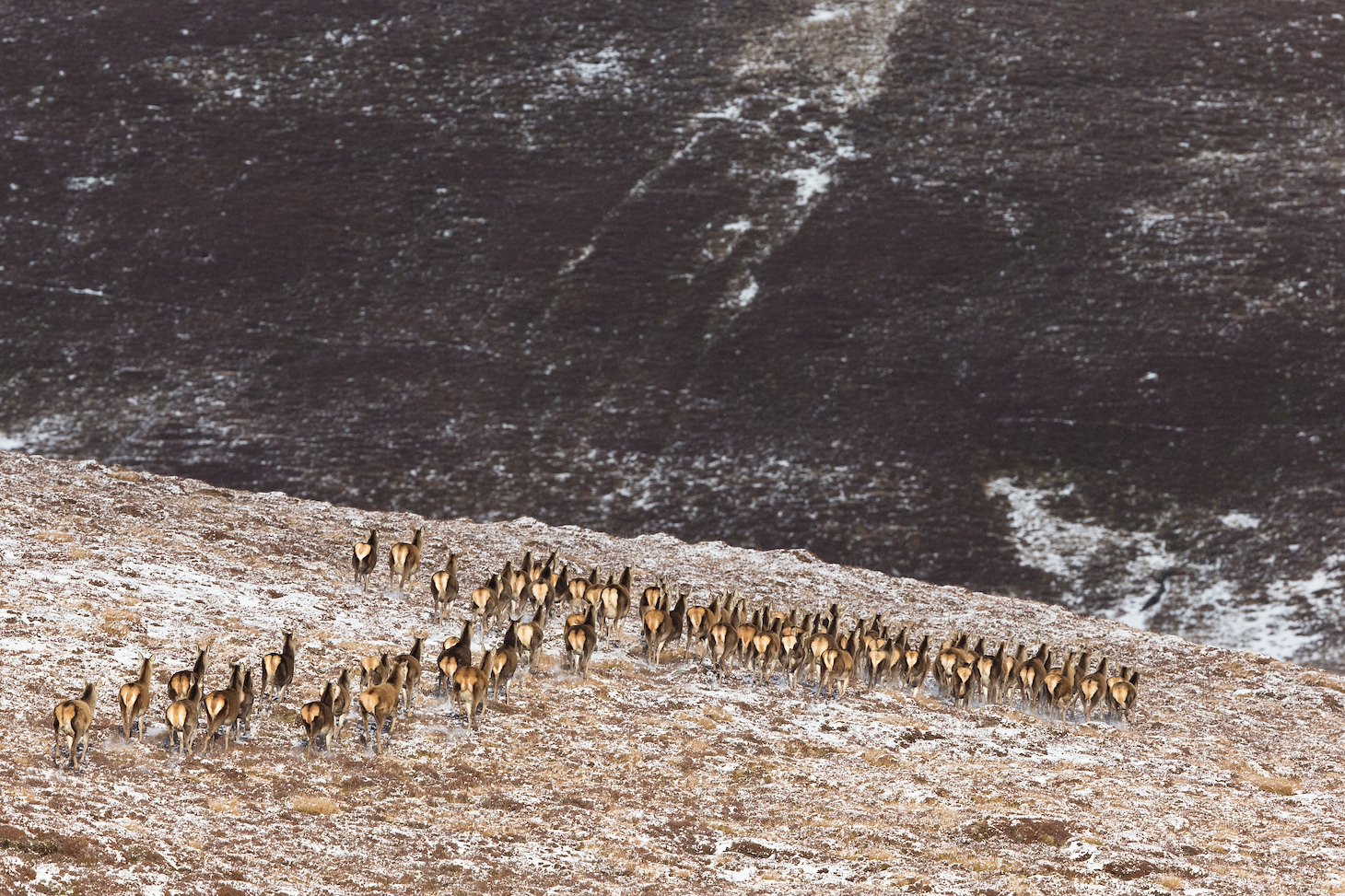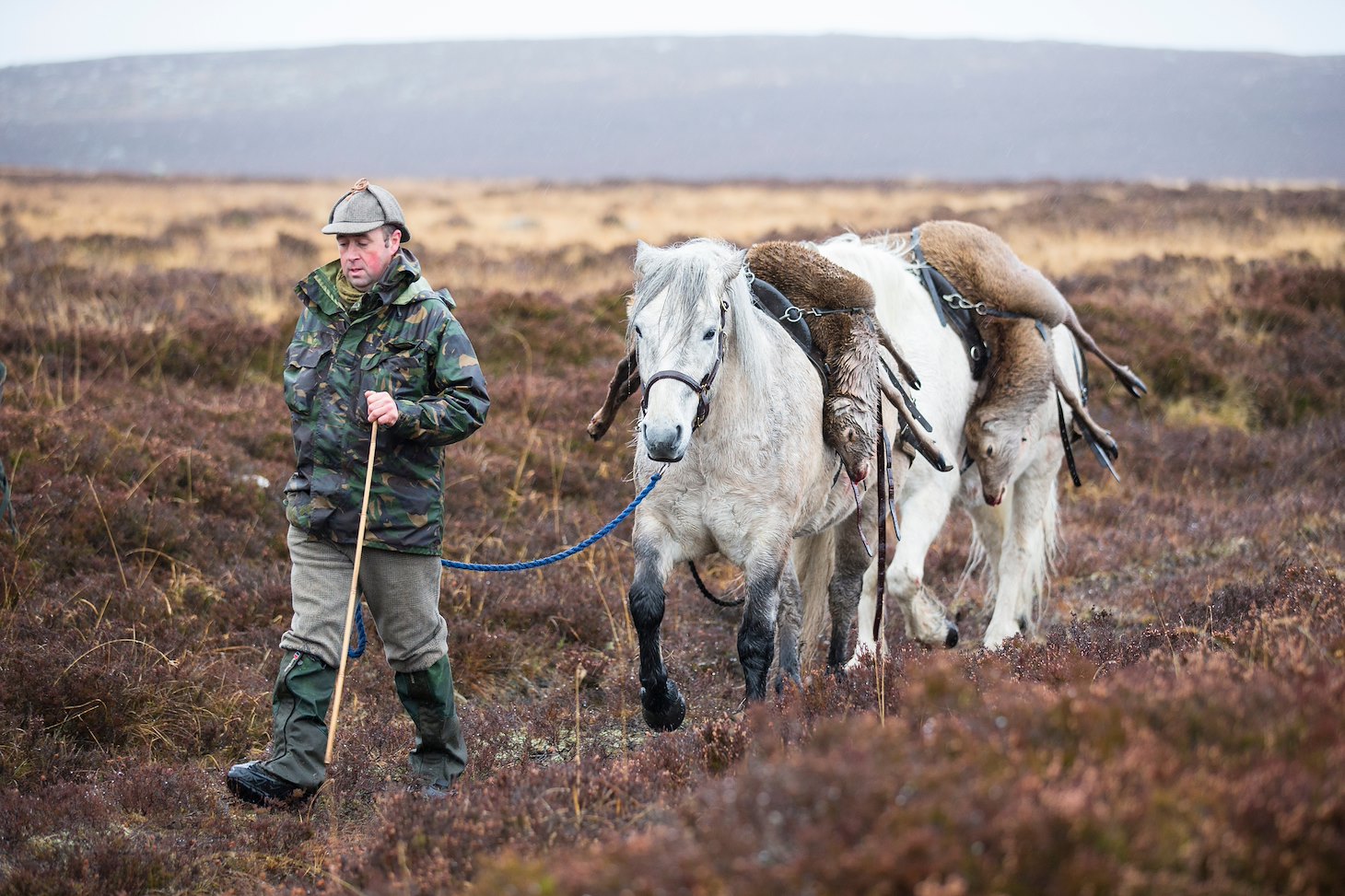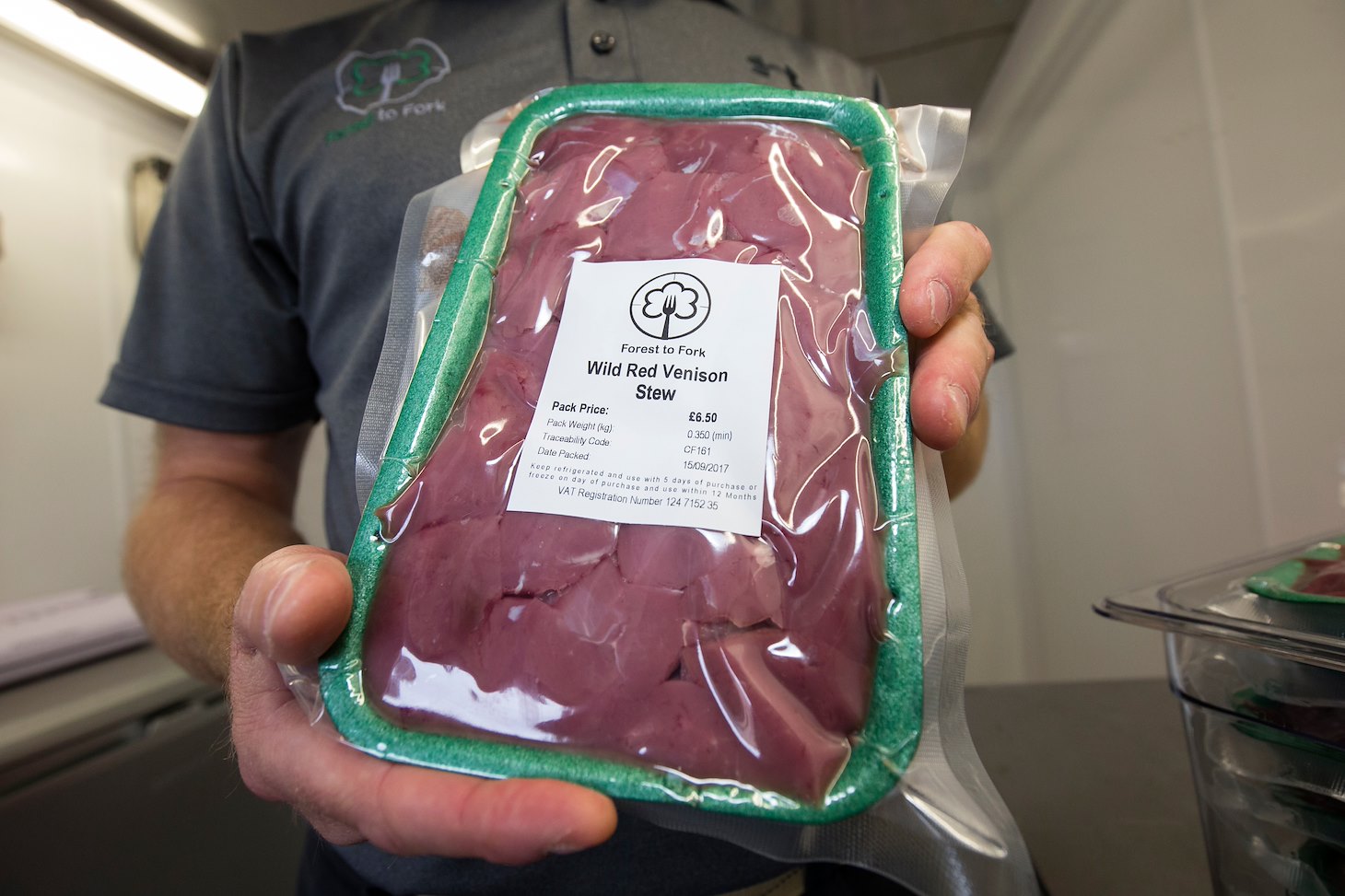Deer are a central component of Scotland’s ecosystems, contributing vital natural processes through grazing, browsing, trampling, nutrient cycling and seed dispersal. Additionally, in many Scottish communities, deer stalking plays a significant role – providing jobs, food, and for some people, a sense of place and cultural identity.
Nobody contests the value of deer, or the affection these animals inspire. However, in the absence of natural predators and with strong ties to traditional sport shooting, excessive deer numbers in many areas have become a barrier to the recovery of native woodlands and peatlands, reducing biodiversity and impairing climate resilience.



THE CHALLENGE
Shaped by a cocktail of social, cultural and economic influences, discussions around deer management are often characterised by entrenched and impassioned opinions, low trust and siloed thinking. Red deer in particular have become a totem for tensions around wider changes in land management: How can ecological restoration and rural traditions coexist? What should Scotland's landscape look like in the future? Who should it serve and who should have a say? And how do we reach a compromise that everyone can sign up to?
Deer forests – a phenomenon peculiar to the Highlands of Scotland – are large areas of land managed primarily to maintain a resident population of red deer for sport shooting. In many parts of Scotland, these 'forests’ are characterised by an almost total absence of trees.
FINDING THE COMMON GROUND
Throughout The Fiadh Project we will work closely with The Common Ground Forum, a network of stakeholders from across Scotland’s upland deer sector, committed to diffusing the tensions that have stifled conversations around deer management. SCOTLAND: The Big Picture is a signatory to the Common Ground Accord, which sets a new standard for respectful, progressive conversations across this traditionally contested area.
Watch our short film to discover the founding principles of the Forum.
When deer densities are in keeping with the carrying capacity of the landscape, a more dynamic mosaic of habitats can emerge, supporting a greater diversity and abundance of species.
THE FIADH PROJECT
Inspired by the Gaelic word ‘fiadh’ (pronounced FEE-ugh), which refers to both ‘deer’ and ‘the wild’ – the Fiadh project will produce and share a range of creative resources to catalyse fresh conversations and shift perspectives.
The Fiadh project suggests a new way of measuring successful deer management, which places greater emphasis on the recovery of natural systems, leading to a more diverse, more productive and more resilient landscape, where the vital role of professional land managers is maintained and valued.
And this is what it might look like...
50 years in 50 seconds is a visual representation of how a familiar Scottish landscape might develop over half a century, with reduced grazing pressure. As time unfolds, native woodlands expand, natural processes return and biodiversity flourishes as new habitats appear.
The exact nature and extent of change depends on many factors, but the transformation from a simplified landscape into something more complex and productive, is likely to apply to many upland areas across Scotland.
Animation: cbec eco-engineering UK Ltd
Sound: Peter Smith
Commissioned by: SCOTLAND: The Big Picture as part of the Fiadh Project


